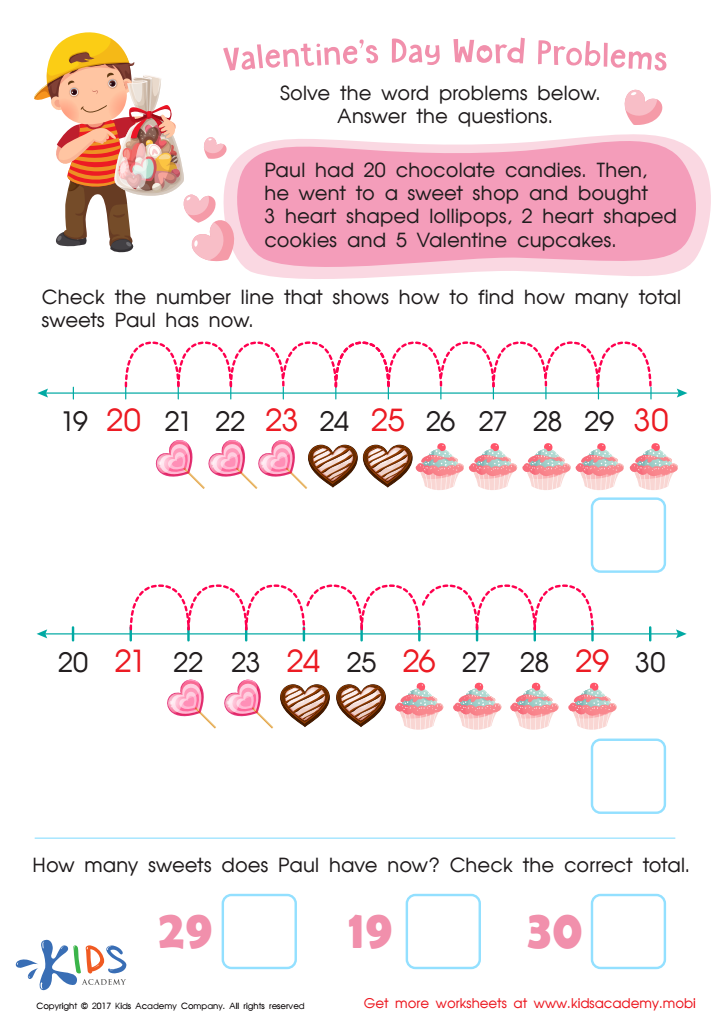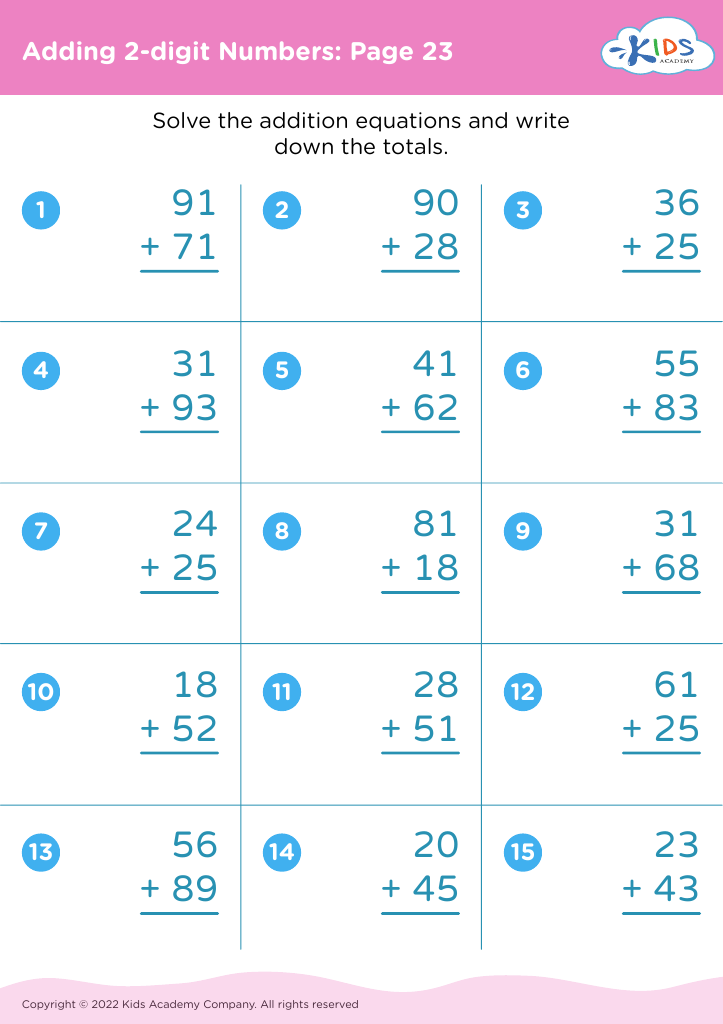Visual perception Addition & Subtraction Worksheets for 8-Year-Olds
5 filtered results
-
From - To
Enhance your 8-year-old’s math skills with our engaging Visual Perception Addition & Subtraction Worksheets! Designed to make learning fun, these worksheets blend colorful visuals with essential math concepts, helping improve your child's understanding of addition and subtraction. Each activity is crafted to boost visual perception, ensuring kids can quickly and accurately interpret numerical problems. Suitable for both classrooms and home practice, our worksheets enable children to build confidence in math through interactive and visually stimulating exercises. Foster a love for learning and bolster key math skills with these expertly curated worksheets for young learners.


Valentines Day 2 Printable


Adding Flower Petals Worksheet
Visual perception plays a pivotal role in an 8-year-old's ability to master addition and subtraction, laying the foundation for future mathematical skills and overall cognitive development. When children engage in visual learning, they can better understand abstract concepts and enhance their problem-solving abilities.
Visual perception activities help children efficiently process and organize visual information, enabling them to recognize number patterns, align numbers in multi-digit operations, and understand place value. Games like using number lines, colored blocks, or pictorial representations make abstract mathematical concepts more concrete and engaging. For example, visualizing that 8 birds are perched on a tree and 3 fly away helps children grasp subtraction in a relatable manner.
Moreover, visual tools can aid children in detecting errors, promoting self-correction and confidence in handling numbers. Enhanced visual perception contributes to improved organizational skills and spatial awareness, critical for understanding geometry and algebra.
Teachers and parents should prioritize visual perception activities as they foster a deeper comprehension and fluency in basic arithmetic. Integrating these activities not only boosts mathematical skills but also encourages a child’s creativity, critical thinking, and overall academic performance. Empowering children with these skills at an early age paves the way for lifelong learning and success.
 Assign to My Students
Assign to My Students























